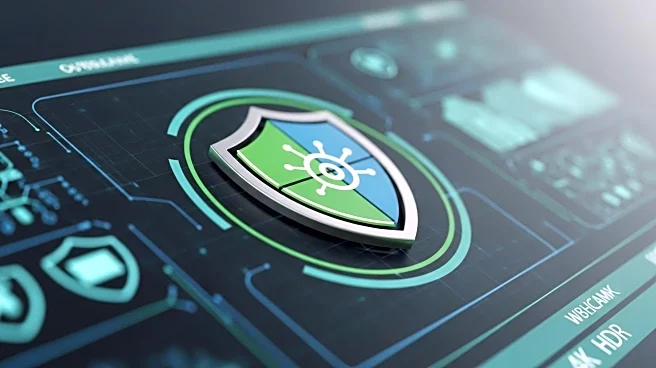What's Happening?
Dutch intelligence services have confirmed that the Chinese state-backed hacking group, Salt Typhoon, has targeted organizations within the Netherlands. This confirmation aligns with earlier findings by U.S. agencies, including the FBI and CISA, which linked Salt Typhoon to a significant espionage effort against American telecom companies. The Dutch Military Intelligence and Security Service and the General Intelligence and Security Service (AIVD) independently verified parts of the U.S. findings using their own intelligence. While Dutch organizations were less impacted compared to their U.S. counterparts, evidence showed intrusions into routers at smaller internet service providers and hosting companies. Investigators found no signs of deeper breaches into internal networks. The Dutch agencies collaborated with the National Cyber Security Centre to alert affected entities and emphasized the need for constant vigilance and proactive measures to counteract Chinese cyber operations.
Why It's Important?
The confirmation of Chinese cyber intrusions by Dutch intelligence underscores the global reach and sophistication of state-backed cyber espionage activities. This development highlights the vulnerability of critical infrastructure and the necessity for international cooperation in cybersecurity. For U.S. industries, particularly telecom companies, the ongoing threat from Salt Typhoon represents a significant risk to data security and operational integrity. The broader impact on public policy includes potential shifts towards more stringent cybersecurity regulations and increased investment in cyber defense mechanisms. Organizations across the globe must enhance their security protocols to protect against such intrusions, which could lead to financial losses and compromised sensitive information.
What's Next?
Dutch agencies, along with their U.S. counterparts, are likely to continue monitoring and investigating the activities of Salt Typhoon. Affected organizations may need to implement stronger cybersecurity measures and collaborate with national security centers to mitigate risks. The incident may prompt further diplomatic discussions between the Netherlands, the U.S., and China regarding cyber espionage and international cybersecurity standards. Additionally, there could be an increase in public and private sector initiatives aimed at improving cyber resilience and intelligence sharing.
Beyond the Headlines
The ethical implications of state-sponsored cyber espionage raise questions about international norms and the balance between national security and privacy. As cyber operations become more sophisticated, the legal frameworks governing such activities may need to evolve to address the challenges posed by cross-border cyber threats. The cultural dimension involves fostering a security-aware environment where individuals and organizations are educated about the risks and equipped to respond effectively.











